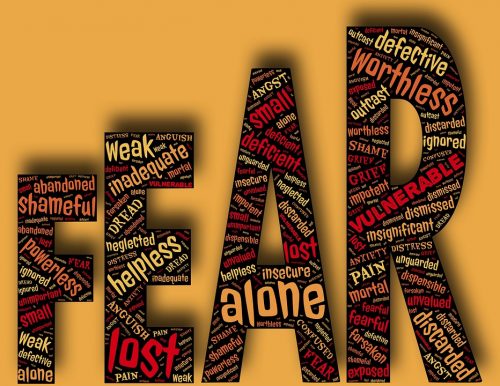
Source: pixabay.com
Childhood anxiety is a serious but often undiagnosed condition. Separation anxiety, social phobia and generalized anxiety are among the most common mental health issues affecting children and adolescents. — James Pendleton Ph.D.
When it comes to verbal cues, children aren’t really good at them. For this reason, it’s quite a predicament for parents to coax their children into opening up about their fears and worries. Thankfully, there are ways to determine if your child is becoming anxious and if there is a need to seek pediatric counseling.
Red Flag #1: Difficulty Falling Asleep
Having difficulty falling asleep, waking up often in the middle of the night, or unexpectedly asking to spend the night in your bed are typical signs of pediatric anxiety. Sudden and significant changes in children’s nighttime routine are coping mechanisms used to deal with anxiety. To ease the feeling of children, it is crucial to follow night habits that usually involve children and parents listening to soothing music, helping kids with their shower, and reading books right before bedtime.

Source: pixabay.com
Red Flag #2: Constant Irritability
Noticing sudden, extreme behavior and mood swings in a child is another warning sign that he or she has anxiety issues. If an easy-going, cheerful, amiable child becomes obsessed with being a perfectionist and becomes aggressive or irritable, he or she may be displaying her fears and worries. Once these behaviors surface, it is best to have frequent communication with your children and ask questions aimed explicitly at knowing how your child feels and what made them feel that way.
The goal is to dig deep and know the root of all his or her behaviors. Make your children aware that you are fully invested in knowing what’s happening in their lives and you are determined in helping them figure out a way to resolve the issue. Often, all children need is a reassuring, concerned adult to make them feel secure and loved.
Knowing the factors that contribute to anxiety will lead you to the best solutions. It’s sort of like having a car that’s making a funny sound. You need to find out what’s making the sound before going in and changing parts. — Christopher Lynch Ph.D.
Red Flag #3: Attachment To Devices
Kids are prone to engaging themselves in video or computer games; however, those who are dealing with anxiety may continuously immerse themselves in these addictive devices. Excessive usage of activities that involve gadgets is usually a red flag for anxiety. Modern-day technologies are often used to escape momentarily from reality and stressors of life. However, if you notice that your children are creating a stronger relationship with their computer games instead of their real-life friends, this is most likely a case of anxiety.
To deal with this predicament, you first have to talk to your children about the negative impact of constant exposure to screen-based novelties. Then, while your children are using their devices, interact with them by asking questions about what they’re playing or watching and what they liked about it. You will be amazed by the extent of information you can conjure while they are busy with their digital activities. Don’t miss out on the opportunity of asking how your child feels whenever they play the game they love.
Red Flag #4: Becoming Extra Clingy
During a child’s first few years, they are expected to be dependent on their parents. As they grow old, it’s a natural occurrence for them to separate themselves from adults to find their own identities and mingle with other people. If children who were once independent suddenly became more emotionally attached to their parents, that is a subtle red flag for developing anxiety.
Children who crave for attention and alone time or become increasingly jealous of their siblings may be crossing from a secured attachment phase to an anxiety-directed attachment phase. Don’t miss out on subtleties like this; children’s behaviors change for numerous reasons. Reflection by parents on their kid’s actions is essential.
Red Flag #5: Achieving Perfectionist Status
Dedication to school, specifically academics, sports, and other extracurricular activities is excellent for the growth and development of kids. But when their commitment has shifted to becoming a perfectionist, a parent must be prompted that their kids are experiencing anxiety that is most likely related to school. Fixation on getting everything right or not wanting to commit mistakes may significantly affect your children’s enjoyment in joining activities.
There is nothing crooked about achieving goals and dreams. However, there is a thin line that separates healthy from unhealthy thinking. If this is the condition, you have to communicate with your children regarding their views on not achieving their set goals and help them see that committing mistakes or not making it the first time is part of life’s ups and downs.
It was reported that one in every 5 young adults, ages 18 to 28, experienced an anxiety episode during the last 12-month period, preventing them from adapting to the challenges of adulthood. — William L. Mace Ph.D.

Source: pixabay.com
Anxiety in children is a considerable circumstance that needs to be attended to immediately. If the solutions mentioned were not effective in relieving your children from their anxiety, seeking help from pediatric counselors or child counseling specialist can be taken into significant consideration.
